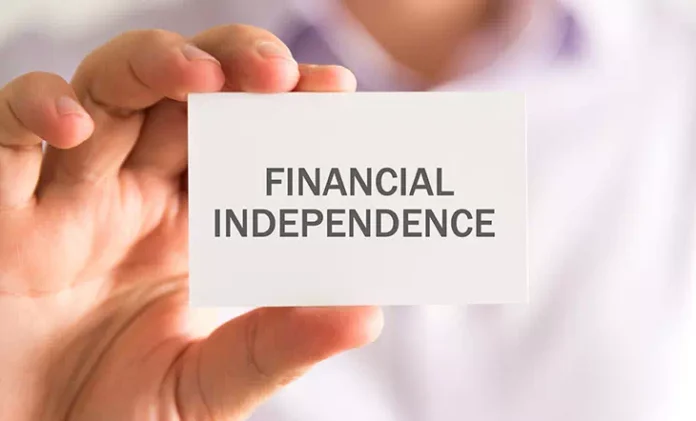Achieving Financial Independence can be an intimidating goal, but with the right steps, it can be attainable.
Determine exactly what financial independence means for you
Achieving financial independence is a meaningful and powerful goal, but it looks different for everyone. To make sure your efforts pay off, you need to be clear with yourself about what financial independence looks like to you specifically. Look at your lifestyle preferences and budgeting practices, as well as any other important factors in your life.
Then outline a plan of action with real measurable milestones that you can reach over time toward achieving long-term financial independence. With continual analysis of your progress and the flexibility to adjust whenever needed. This tailored approach will ensure that when you finally reach the destination of financial freedom, it will have been worth every step of the journey.
Create a budget and figure out ways to cut back on unnecessary spending
Achieving financial independence starts with creating a budget that allows you to live within your means. Begin by separating the mandatory expenses, like electricity and rent, from the non-essential costs. Then, figure out those unnecessary expenses that can be cut back on or eliminated completely. Focus on reducing spending by cutting off things like eating out and entertainment, trips you don’t need to take an expensive hobby.
Shopping for universal instead of branded products and buying secondhand items also help reduce spending habits. Utilizing coupons, looking for discounts online, and avoiding sales tricks offered by retailers can be useful in allocating funds that are necessary to reach financial independence.
Make sure your savings are properly allocated
One important step is making sure your savings are properly allocated between short-term and long-term goals. Whether it is keeping emergency funds to cover unexpected expenses or investing in retirement or education funds, knowing the difference between your short-term and long-term objectives can help you maximize the potential of your finances.
Playing the long game with your money is often beneficial because you get the chance to benefit from compound interest over time. Setting your priorities by understanding what resources you need for now and for later can put you well one way on the path toward financial independence.
Take advantage of employer benefits
Taking advantage of employer benefits is a great step toward financial independence. From investing in a 401k plan to job training opportunities, there is no better way to plan for your family’s future than by securing these benefits from your employer. Taking this approach allows you to focus on the long-term goal of achieving financial security through moderate contributions over time.
Additionally, it gives you access to resources that will help you create a successful career path, develop new skills, and make yourself more competitive in the marketplace. While it may take some effort to regularly review and update your employer benefits portfolios, building these investments now can help significantly reduce financial stress later in life.
Explore options for passive income streams that will supplement your current salary
Although your salary can provide you with the means to obtain basic necessities, options for passive income streams can help to take you to the next level, and make you even more financially secure long-term. Researching ways to diversify income sources is key, and there are lots of different ones that you could consider investing in.
From rental properties to stock dividends and high yields savings accounts, there’s something out there for all kinds of interests. A combination of these passive incomes may not bring in huge amounts at first but over time they are sure to compound into a small fortune. It all boils down to taking an active approach to proactively pursuing financial freedom. By exploring the various options available and by setting achievable goals for yourself.
Consider starting your own business
While financial independence can be a daunting goal to achieve, one option to consider is starting your own business. This can provide a steady income and help you build wealth more quickly than ever before. With the right resources and determination, financial freedom may be easier than you think.
Look into an SBA lender, as they provide supportive services like business plans, local resources, and networking recommendations that take the guesswork out of launching a new enterprise. Starting your own business is an investment in your future that should not be overlooked when trying to seize financial independence.
Create an emergency fund because life happens
Achieving financial independence requires a strong foundation, and creating an emergency fund should be one of the first steps taken. Too often, people find themselves in tough spots due to unforeseen expenses like medical bills or car repair costs.
Having an emergency fund set aside helps by providing resources to draw from without having to deplete other accounts, preventing anyone from getting into debt just because of some bad luck. With a little work and budgeting, building up an emergency fund has never been easier – and it can help you keep on track toward financial independence.
Following these steps will help you to ultimately reach financial independence sooner than expected.







![Anso FG Reviews: UPDATED 2024 [ansofg.com] Anso FG Reviews UPDATED 2024 [ansofg.com]](/wp-content/uploads/2023/12/Anso-FG-Reviews-UPDATED-2024-ansofg.com_-100x70.png)







